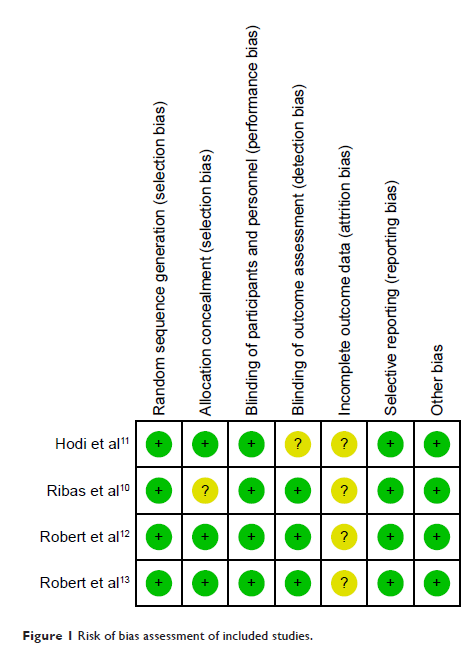108384
论文已发表
注册即可获取德孚的最新动态
IF 收录期刊
- 3.4 Breast Cancer (Dove Med Press)
- 3.2 Clin Epidemiol
- 2.6 Cancer Manag Res
- 2.9 Infect Drug Resist
- 3.7 Clin Interv Aging
- 5.1 Drug Des Dev Ther
- 3.1 Int J Chronic Obstr
- 6.6 Int J Nanomed
- 2.6 Int J Women's Health
- 2.9 Neuropsych Dis Treat
- 2.8 OncoTargets Ther
- 2.0 Patient Prefer Adher
- 2.2 Ther Clin Risk Manag
- 2.5 J Pain Res
- 3.0 Diabet Metab Synd Ob
- 3.2 Psychol Res Behav Ma
- 3.4 Nat Sci Sleep
- 1.8 Pharmgenomics Pers Med
- 2.0 Risk Manag Healthc Policy
- 4.1 J Inflamm Res
- 2.0 Int J Gen Med
- 3.4 J Hepatocell Carcinoma
- 3.0 J Asthma Allergy
- 2.2 Clin Cosmet Investig Dermatol
- 2.4 J Multidiscip Healthc

免疫衰老对黑色素瘤患者免疫检查点抑制剂疗效的影响:一项综合分析
Authors Li P, Yang X, Feng Y, Wu L, Ma W, Ding G, Wei Y, Sun L
Received 12 February 2018
Accepted for publication 13 May 2018
Published 26 October 2018 Volume 2018:11 Pages 7521—7527
DOI https://doi.org/10.2147/OTT.S165368
Checked for plagiarism Yes
Review by Single-blind
Peer reviewers approved by Dr Amy Norman
Peer reviewer comments 2
Editor who approved publication: Dr Jianmin Xu
Background: Immunosenescence, the age-related decline of immunity, affects the immune responses of melanoma patients. Through immune responses, immune checkpoint inhibitors (ICIs) exert their antitumor robustness. In different ages of melanoma patients, especially the older patients, the effectiveness of ICIs remains unclear. It is still controversial whether ICIs should be used in treating older patients.
Materials and methods: The authors included clinical trials of ICIs in older and younger patients. The authors used hazard ratio (HR) and 95% CI of overall survival (OS).
Results: From four phase III randomized clinical trials 2,251 melanoma patients were included. We found that ICIs significantly prolonged the OS for melanoma patients in both younger (HR, 0.71; 95% CI, 0.60–0.82; P <0.001) and older groups (HR, 0.62; 95% CI, 0.41–0.83; P <0.001) compared with controls. Anti-programmed death-1 (PD-1) agents appeared to be more efficient in older melanoma patients (HR, 0.34; 95% CI, 0.14–0.53) versus younger patients (HR, 0.52; 95% CI, 0.26–0.78).
Conclusion: ICIs significantly prolonged the OS for melanoma patients in both younger and older groups than controls. Anti-PD-1 agents were more efficient in older melanoma patients versus younger patients. ICIs could be used for older melanoma patients.
Keywords: immunosenescence, aging, immune checkpoint inhibitor, PD-1, melanoma
